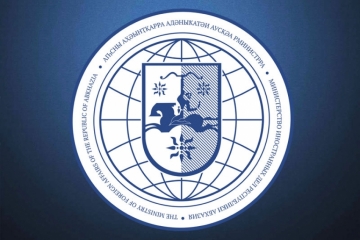Speaking in the Georgian parliament on December 11, Salome Zurabishvili called for the search for new approaches to rapprochement "with our Abkhaz and Ossetian population living in the occupied regions."
Apparently, President of Georgia is seriously convinced that by asking to search for some new approaches to rapprochement with the “Abkhaz population” she pleasantly surprised both the public of her country and the citizens of the Republic of Abkhazia. At the same time, it remains a mystery what the novelty of these approaches may be and how they are supposed to be implemented. President of Georgia did not speak in detail on this topic, ” the Commentary says.
Commentary of the RA MFA
During her speech in the Georgian parliament on December 11 this year, Georgian President S. Zurabishvili made an appeal to search for new approaches for rapprochement "to our Abkhaz and Ossetian population living in the occupied regions." She is convinced that Georgia should "look for ways to get closer to the peoples of the occupied regions - Abkhazia and South Ossetia."
Apparently, President of Georgia is seriously convinced that by calling on the parliament to search for some new approaches to rapprochement with the “Abkhazian population”, she pleasantly surprised both the public of her country and the citizens of the Republic of Abkhazia. At the same time, it remains a mystery what the novelty of these approaches may be and how they are supposed to be implemented. President of Georgia did not speak in detail on this topic.
At the same time, S. Zurabishvili's rhetoric leaves no doubt what such new approaches can represent. It makes it clear to us that she means exclusively “the population of the occupied regions”. Apparently, in the minds of the Georgian leaders, rapprochement can be carried out only through various kinds of dubious programs, such as "Step to a Better Future", aimed at the gradual integration of Abkhazia into Georgia. However, a clear understanding of the existing realities should have convinced Tbilisi that such approaches would not work.
If there really was an interest in demonstrating a desire to change the previous policy towards Abkhazia in Georgia, then new approaches would first of all have to be manifested in practice, for example, on the platform of Geneva discussions.
But as the recent 51st round of the International Geneva Discussions has shown, Georgia is not yet ready for such a rethinking of its policy. Otherwise, the Georgian side would have shown a more constructive position and would not have persisted in agreeing on a document on the non-use of force between Abkhazia and Georgia. The adoption of such a document would become a real indicator of qualitative changes in Tbilisi's approaches to the Republic of Abkhazia. Attempts to present various humanitarian programs for the "population of the occupied regions" will only have a negative effect, further postponing the possibility of an equal and trusting dialogue between Abkhazia and Georgia.
Taking into account the above, we call on the Georgian side to show the necessary flexibility and, focusing on the existing political realities, take steps to create conditions for the agreement and subsequent adoption of a document on the non-use of force between Abkhazia and Georgia.




